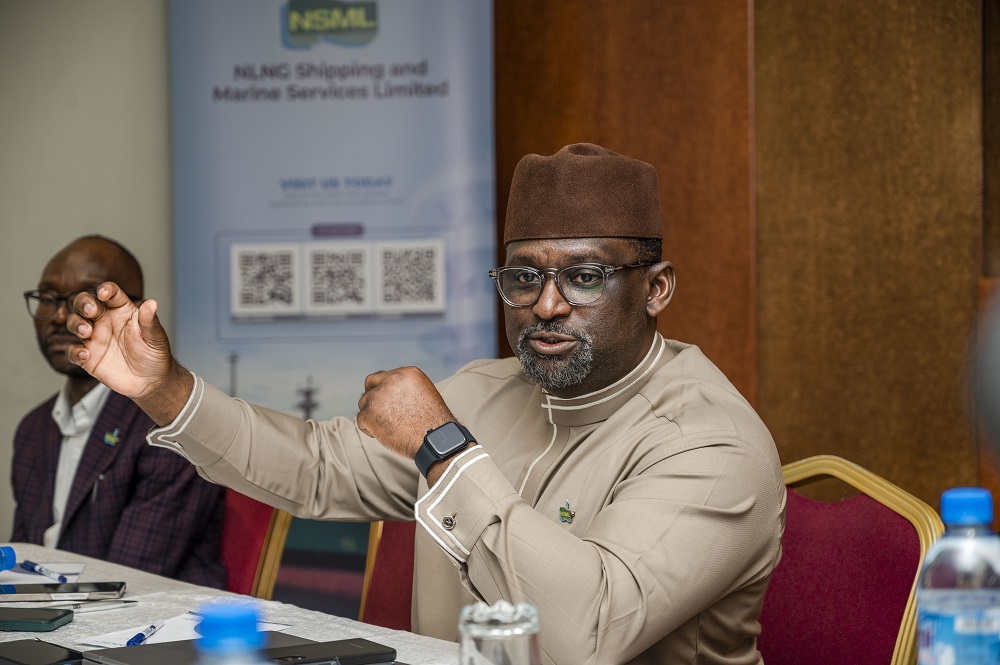The Managing Director of NLNG Shipping and Marine Services Limited (NSML), Abdulkadir K. Ahmed, in a chat with some journalists in Lagos last week, speaks on some salient issues concerning the industry and NSML’s laudable achievements, reports Frank Kintum for Transport Day
NSML gone into training, developing a training institution. So what’s the reason for that?
Shipping business is a highly technical business. But the foundation of that business is about competence. It’s about competent people, you can have ships they will not move themselves, people ultimately run vessels and due to the nature of shipping, it’s important that those who are running vessels are competent. So, for us training isn’t just simply a side activity, it is fundamental to who we are in the shipping business. That ability to attract, develop competent seafarers who can manage vessels safely reliably and efficiently is very, very important, so that’s really the essence of it.
The Maritime Centre of Excellence (MCOE) isn’t just a training institute, it is a Marine Project Consultancy and Training outfit, so it goes beyond just training because obviously, competence is a marketable skill especially when it comes to shipping and the MCOE is that entity within NSML that is able to provide that service of course, being the ability to provide that service requires that you have competent individuals that are constantly being trained, kept abreast of new developments so that they will continue to effectively and efficiently manage our assets as well.
Is it just for NSML or open to other shipping companies to access its services?
Yeah, so maybe just to give you a perspective and I’m sure you’ve had this before in terms of the evolution of NSML as an entity.
Why was it created in the first instance? Before NSML was created, before even NLNG, the first train was built, the NLNG shareholders acquired vessels and those vessels were manned and managed offshore. So NSML was created with the sole purpose of domesticating international maritime skill sets, locally; and providing opportunities for Nigerians to participate in that sphere.
And when it was created, it was created purely from a manning point of view. So it was NLNG Ship Manning Limited. Basically that entity that employed the seafarers developed them and then deployed them onto vessels. And part of that evolution as we went along, the next step, of course, is to now take over the technical management of the assets, the vessels themselves, an activity which was done by foreign companies offshore. The same process of development went through where people were developed, capacities, competencies and capacities developed and once we got to that level where we were comfortable, we now took over the technical management of the vessel and when we did that NSML then evolved into NLNG Ship Management Limited.
As we went along, we then took over the technical management of the Bonny Terminal, and went further to set up the Maritime Centre of Excellence, which is a training consultancy and project management entity.
The entire business was centered towards providing services in-house but the evolution of the company entailed that once we are able to provide those services in-house, we then be able to now branch out and be able to provide those services externally and that also really led us to looking at our vision which is really centered around being a leading integrated and international maritime services company, supporting the growth and development of the Nigerian maritime industry, and the best way we can do that is to reach out to the industry and work with the industry and provide services to the industry. So to cut a long story short, the activities of NSML isn’t just simply limited to Nigeria LNG. Of course, NLNG will always remain a core customer but our services and activities cut beyond NLNG energy and also it is open to third parties within the Nigerian and African energy logistic business.
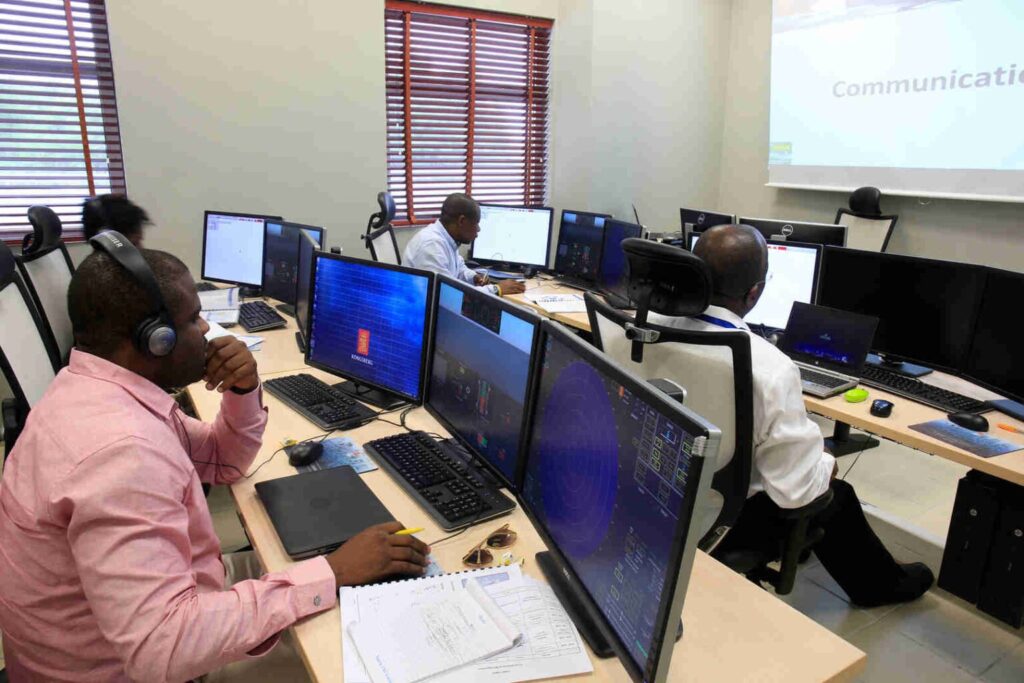
The accreditation of MCOE courses will come with challenges, how are you prepared to handle them? Who can come to the Maritime Center of Excellence for training?
Two-faced question, so, first things first. The element of accreditation is not just simply looking at your curricula. It’s about looking at your readiness. So when the MCA came to audit the MCOE, they were looking at the readiness of the institute to effectively and qualitatively provide those courses.
If they felt we were not ready, if we did not have the capacity, it doesn’t matter that the curriculum is good, they wouldn’t have accredited us. So, in terms of readiness, absolutely, we are. We wouldn’t have gone for accreditation if we were not ready. We are a training centre and we’ve identified those programmes, those courses that we have the capacity and the facility, we went for that accreditation.
So the accreditation itself tells you that, we’ve been adjudged by a stringent, independent auditor to be capable.
One of the things that we’ve always said, is that shipping is like an international profession and then you have to have international standards.
Looking at this now, how much impact do you think this training will have in marketing Nigerian human capital abroad and where do you see NSML in the next 10 years?
I have said, now it has reduced about 70% of the cost of training.
And remember when we started, I narrated to you the trajectory of where we are coming from. Because I always said, where you’re heading to, does not happen in a vacuum. It depends on where you are coming from. And NSML as an entity started out as a ship manning entity. And we then evolved into a ship management entity.
And now we are an integrated marine, shipping and marine services company being able to provide a plethora of shipping and marine services. I don’t want us to end up assuming NSML is a training entity no, maritime training is an aspect of shipping and marine services so where do I see NSML in next 10 years, basically we are already on that path towards being an integrated shipping and marine services entity able to provide all the plethora of shipping and marine services both offshore and internationally. Of course our core business still remains the technical management of vessels, that is the foundation of our business and we’ll continue to do that but part of our growth and diversification is to go into Terminal Management which we are already in, in terms of Marine Projects and Consultancy, which the MCOE is into, vessel design, construction supervision, all of those activities that we are into. We’re equally expanding into offshore support. Tugboat services, we already manage the marine crafts, marine services in Bonny and that’s also an activity that we intend to expand into and we’re going to grow beyond who we are today to be a full-fledged integrated shipping and marine services company able to provide services both onshore and offshore, and internationally.
We are in the energy logistic business. We’re not in a container business, our sole purpose is to enable those in the energy business to move products from one location to the other and that’s what we’ll continue to do and the whole essence of it is that we will grow to become the number one, we are the number one LNG, technical shipping and marine services company in Nigeria today, but the idea is to grow beyond Nigeria into West Africa, across Africa and internationally. And we are on that path already.
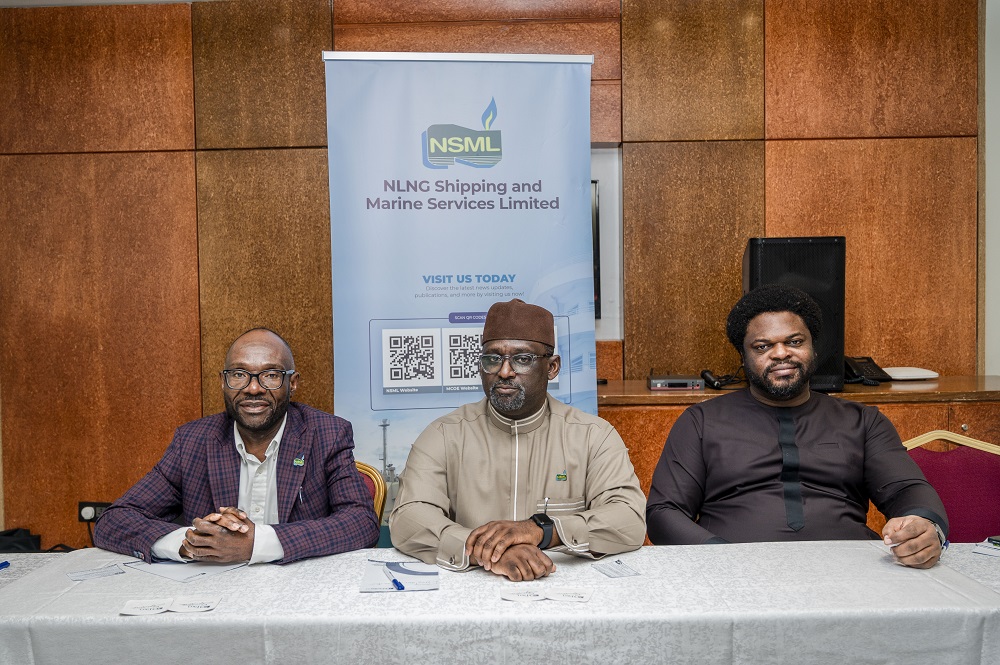
What are your challenges?
We see the shipping and marine business as a business like any business with opportunities and with opportunities, come challenges. However, our role is to simplify challenges. So, there are challenges obviously within the context of shipping challenges and those challenges are not peculiar to us. It is an industry set of challenges. One of them is regulation; fast evolving regulation. Regulations are changing. New regulations are being put in place.
There are also the peculiarities of the ease of doing business in Nigeria but like I’ve always said, the essence of business is to find solutions to challenges because if there are no challenges, then we won’t be in business so those challenges from our point of view are also opportunities. For example. Nigeria is a country with more than 200 million people.
From the last count, I think 60% are below the age of 30. So we have a large pool of young people that have the capacity to be seafarers. It’s about providing them the opportunity.
So yes, there are challenges of skilled manpower. The training centre is basically aimed or targeted at addressing some of those challenges.
We cannot do it alone, but at least we are contributing to that. Regulations, that’s the beauty of the industry, it is a highly regulated industry and rightly so because safety is critical, reliability is critical and therefore it has to be regulated because any mistake could be catastrophic.
So there are regulations and part of why we are in business is ensuring that we take those regulations take those standards and ensure we fully adhere to them so on one hand yes there are challenges but ultimately that’s why we’re in business the ease of doing business is a reality in any environment. But the beauty is the government has recognized that the role of government is to create an enabling environment for business to thrive. And the ease of doing business is something that is constantly being addressed. Whether it is with the regulators, whether it is in the local environment, it’s something that we all have to adapt to and show we find a way to make the best of it
Can your vessels compete with international flags?
Absolutely, we are already competing internationally, on quality and competence.
How many vessels do you have under the management of NSML and how many cadets have benefited?
That’s an easy one. So currently we have 11 LNG vessels under our management and two LPG vessels that is, 13 under our management, of course the goal is to expand.
I am sure some of you remember recently we took over the technical management of one of the most advanced LNG vessels in the world and these are new vessels really that are cutting edge in terms of efficiency, de-carbonization, carbon emission.
So we are one of the few ship management companies that have those kind of vessels under our management today. We’re hopeful we’ll take a second one sometime next year.
But most importantly we are equally diversifying our vessel, the type of vessels that we manage, which is why we have now moved into managing LPG vessels. We have two vessels under our management.
We are hopeful because LPG again is something within the African setting we believe is a good area.
With regard to the number of cadets that have been on our vessels, it’s over 200 in the last six to seven years, we typically do between 40 and 50 cadets a year.
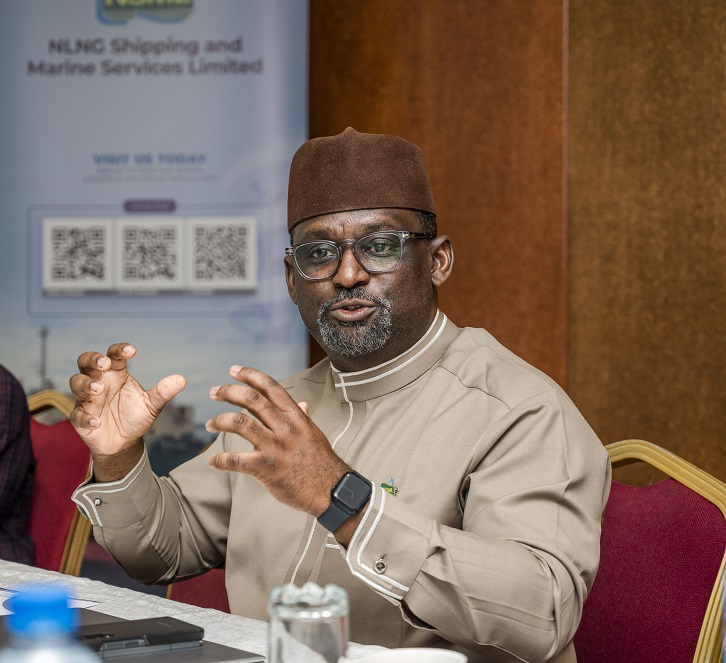
What are you doing about GOG, greenhouse gas emissions, and other climate change issues?
When it comes to the regulations around de-carbonization, greenhouse emission, the whole essence of it is to create efficient shipping that pollutes less.
And the IMO has provided a guideline or target which is about net zero by 2050 compared to the level where we are at 2020. So it’s not just us. The entire shipping industry is looking at that.
For us, all our vessels today operate 100% on gas. And gas is a lot more efficient than oil. Whether it is in terms of the paint that you use to paint your hull to reduce friction and make it smoother.
So there are various activities that we’re looking at in terms of how we operate, and we see how we operate using existing vessels. However, despite all of that, as those regulations become stringent, the existing vessels will require significant changes to comply.
Part of those changes will be to retrofit certain engine, certain equipment and stuff like that. So that’s one.
Looking at the gender balance, I want to ask if there is a place for female seafarers and maritime professionals in your organization and what percentage are you giving to this?
Excellent question because for me, I am a diversity champion within the entire group. I am a diversity sponsor as well.
Unfortunately, our industry has been too male-centric over the years, the shipping industry is too male-centric globally and I will give you those statistics. I can definitely throw the statistics, globally less than three percent of the seafarers are women, I say globally. Okay, so it’s not just simply a Nigerian issue, it is not an NSML issue, it’s a global issue. And there are reasons behind that. Being at sea is difficult in the simplest of all terms. However, there has been a concerted effort at attracting the female gender into seafaring.
And we at NSML are taking the lead in Nigeria on that. We, in terms of average number of seafarers on our fleet female, we are at slightly above the global average, which is not good enough. So we have targets and the target for us in the next five years is to push towards having at least 15% of our seafarers being female. When it comes to cadets that go on our vessels, over 25% are female. That’s a starting point. Over 25% are female from a cadetship programme. Now, after that then you have to create the conditions for them to want to be at sea and that comes into the condition of service.
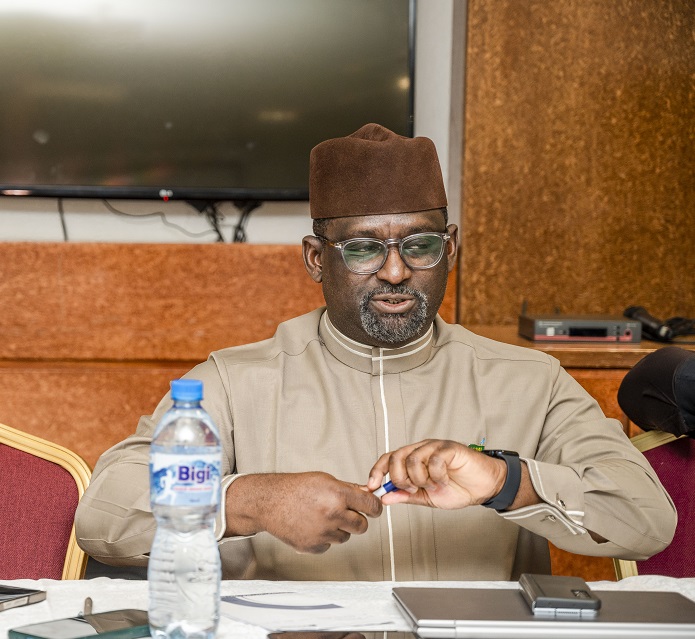
What are you actually doing in terms of CSR?
Thanks for bringing that up. So for us, our flagship CSR (Corporate Social Responsibility) project or initiative, if I can put it that way, is our Clean Waterways Initiative, which is really focused on plastics in our waterway, plastics and debris in our waterway. What we have started doing now is simply recognizing, when you go along our waterways, the amount of debris and plastic you see in our waterways, it’s depressing, absolutely depressing.
So when we came up with that, the Clean Waterway Initiative, it’s around really three elements. One, creating awareness. The second aspect of it is advocacy.
Advocacy in the sense that for as long as you are cleaning and somebody is producing and using and dumping, work done zero. So there has to be a lot of advocacy with regards to the use of single-use plastic. And I’m glad to say certain governments in Nigeria have already imbibed it. Lagos state for example I know have passed a law on that and those are the products of advocacy because it starts from the law.
And then finally, action and action is about how do we all in our own little sphere clean up our environment, we do that in Bonny on a quarterly basis trying to turn into a monthly basis.
We clean our immediate operating environment both the shore and the sea of plastics and debris and ensure we incinerate them and take them out. You can say well what impact would that have on what is a multifaceted problem, the essence of it is simply recognizing that we cannot do it alone. We had a workshop last year where we invited various companies along the Bonny waterway and various government agencies.
Part of the awareness campaign is to educate, people let them recognize that convenient plastic that you think is convenient is a potential killer so that’s really something that personally. I’m quite passionate about it.
NB- two NSML officials-Dr. Effiong Attah and Lawrence Chukwu, also made inputs.

